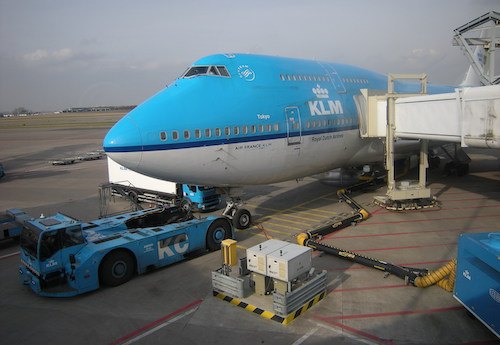Have you ever experienced handling an international project? Well, if you think that your only problem you will ever encounter here will be the different time zones and occasional out-of-town travels, you’re wrong about that, buddy.
In this article, you will learn about the different factors you should know about how to manage international projects. This article will also help you understand how important these factors are to ensure a job well done.
Hi, I’m Adrian

I’m the founder and CEO of Tactical Project Manager, the only place on the web where you can find practical tips on managing projects. Tips that pay off!
I’ve been managing large IT projects for 10 years, and most of my projects were global projects. So I got to work with all sorts of countries and cultures. As an IT project manager, I also got to travel a lot. I did projects in fascinating places like India, Mexico and Turkey (read what I learned in my career).
As you can guess, I have been through all the good and bad of leading international projects.
And what you find here is all based on personal experience.
Are you ready? Let’s start.
Topics
- Language
- Culture
- Working across timezones
- International traveling
- Legal issues
- Cross-border shipping
5 factors you must consider when you get to lead an international project
Managing a local and international project are generally the same. You need to plan for it and deal with a group of people involved in the said project.
The main difference is that in the latter, you deal with multicultural teams. It is be a global partnership, depending on your contacts’ locations or whether your partners are spread in multiple continents.
Other than being involved with diverse nationalities, here are other important factors involved in managing international projects.
Lost in translation: the language issue
Every project requires constant communication. This includes having effective oral and verbal communication skills. But sometimes, you cannot have the best of both worlds. Some people are great in written communication (ex. E-mails, written reports) but are shy when talking in person, or vice versa.
In an international setting, however, speaking different languages can be a barrier to effective communication. The only way to ensure team members can understand each other is by speaking a common language. Not only the language itself but also the important terminologies related to your industry.
We all know that English is a universal language. So it helps if everyone from your team knows how to communicate in written and spoken English. You might have to hire a translator if necessary.
—
I once had a Chinese team member who had trouble communicating in English. But we needed her because she was the subject matter expert for a particular area. So we hired a translator who was with from early morning till late at night.
It was challenging because it would take time to translate her thoughts both in verbal discussions and email. But we decided to hire a translator because the person was the absolute subject matter expert and we had no alternative. So, hiring a translation worked out very well!
—
In some cases, some international team members put the effort into learning your native language. But at the end of the day, as long as all of you understand each other and are able to convey your ideas, then you are good to go.
Pro tip: In case you want to learn the language of the country you’re dealing with: The program that gave me the fasted results and the most confidence speaking a language were the Rosetta Stone online courses. They are expensive but absolutely worth the money!
Culture: Things are quite different over here
Culture is a broad term it can be one of many things. There is no formula for it … it’s like a part of every person’s life. Something that he or she has grown accustomed to and we experience every day whether at work or in your personal life.
Culture can be a lot of things – their language, beliefs, the country’s history, and even how they deal with work. Do they want to be addressed with their first name or their surnames, or even by initials?
In some Asian-run businesses the higher bosses are often referred to by their initials. So, if I was Adrian S. Neumeyer, then I will be known within the company as ASN. Do they also have some kind of hand gestures when they greet a person? How do they communicate with their co-workers? Those kinds of things (by the way, did you know that certain hand gestures are considered rude in some countries?)
Some people are straightforward, while others tend to hold back. In some cultures, being assertive might be interpreted as aggressive or even rude. Such misinterpretations can lead to misunderstandings and even ill feelings toward the other person.
—
Here’s what happened to me: I once managed an IT project with our Turkish subsidiary. At that time, we were implementing a new IT system for them. As a project manager, I dealt with the top honchos and directly communicate with them in person and through email. And it has always been that way since it is the norm in Germany today.

But when I went directly to the local plant manager there, let’s just say he wasn’t pleased. The incident even reached my manager, saying that what I did was unacceptable… at least in their work culture.
In my perspective, I believe I didn’t do anything wrong. But I guess I did not do my research back then in terms of dealing with people I work within other countries. I had thought people interacted more or less in the same way as in my home country, Germany.
—
Like in most European countries, we treat each other at work as equals. We get to talk directly to the executives regardless of where you are on the corporate ladder. On the contrary, some countries — like Turkey and most countries in the Middle East and Asia — are more hierarchical.
That means you have get approvals from your direct supervisor. Rarely do you get to talk to the company executives unless there is a “blessing” from your boss.
Nonetheless, it is a must to have an understanding of the culture that you will be dealing with and adjust to it accordingly. Learning about someone’s culture is crucial in building trust and a good working relationship. And that is exactly what you should do as a good project manager.
If you are a remote worker and dealing with a foreign client, take time to adjust to the latter’s work culture and learn to be assertive. Being assertive can get the results that you want later on.
You might also want to learn about the Hofstede model of national culture to better understand a country’s culture.
Crash course about the Hofstede Model of national culture — a must-know for global project managers
The Hofstede model has six factors that describe the culture of a country:
- Cultural factor 1: Power Distance Index: This factor refers to a society’s acceptance of unequal power distribution, and how it deals with such inequality. Societies with low PDI want a fair distribution of power and seek justification for any inequalities.
- Cultural factor 2: Individualism versus Collectivism: This factor talks about a social framework wherein people are expected to take care of themselves and their loved ones. Collectivism, on the other hand, expects others to look after them in exchange for loyalty.
- Cultural factor 3: Masculinity versus Femininity: This one focuses more on the masculine side’s dominance in society in terms of assertiveness and achievement. Femininity, on the other hand, represents modesty, cooperation, and care.
- Cultural factor 4: Uncertainty Avoidance Index: This factor refers to the society that feels uncertain about the future unknown. So, the question lies: should we let the future happen or control its outcome?
- Cultural factor 5: Long-term versus short-term orientation: This factor depicts societies that are not keen on societal changes and prefer to keep and practice norms and traditions. Meanwhile, some cultures accept these changes as a way to prepare for the inevitable future.
- Cultural factor 6: Indulgence versus restraint: With this model, it is about enjoying life’s pleasures versus suppressing those pleasures through strict social norms.
Knowing one’s culture determines how we interact with people. By knowing a country’s culture, it will be a lot easier to work with people and ensure a successful project.
managing work across multiple time zones will test your coordination IQ
When you work with other people on the other side of the world, you can expect challenges in finishing a project due to time differences. The only means to communicate with your international teammates are via email, phone or your project management of choice.
It is a good idea to have a local project manager in the other country you are working with. That way communication will be streamlined and less confusing. Also, to ensure that the project progress continues despite the time difference.
Also, make sure to set a schedule for project updates. It can be at the end of the day, once a week, once every two weeks, once a month … it’s up to the team’s agreement (see my tips on creating a meeting structure for your project).
What is important is that everyone involved is constantly updated with the project’s progress. At the same time, know whether any issues should be addressed as soon as possible.
Project management apps like Trello, Slack, and Asana can also make communication a lot easier. You can also use these apps as well as Google Drive or Sharepoint to share files within your team.
But sometimes, there might be issues that cannot be simply solved virtually. In this case you may have to meet your international contacts in person. Which leads to this another roadblock…
International traveling: it’s not just about flying business class

Traveling is a great way to explore the world and immerse itself in its diverse cultures. But we won’t talk about traveling on the beach or the like here.
Work-related travels might be less exciting, but might also be necessary to ensure that the project is done. However, preparing for work-related international travel can be challenging.
Everything should be approved by the management, especially the budget. The ticket booking, fixing the entire travel itinerary, and even fixing your errands back home. You would also have to determine who’s traveling with you.
And then there are also other factors you need to consider such as the visa processing, complying with health and safety and legal protocols, and even the fear of flying of people in your team.
So, how are you going to deal with all of these?
To lessen your stress on organizing your work-related travel, get help from a project assistant or intern. He or she will be the one to do the booking for you, arrange hotel accommodation, and all that jazz.
On your part, you should keep track of all expenses. Keep all of your receipts and monitor your costs in a budgeting file (here’s the budgeting sheet I use).
More importantly, do your basic research on the place you are going to and make sure to keep your guard up especially in unfamiliar territory.
I had been to Mexico for work purposes. If you are a sucker for drug-crime stories, then you would know that the country is known for such. For one, Mexico is home to one of the world’s notorious drug lords in the world (look up “Joaquin Él Chapo Guzman”) who is currently serving jail time in the US. Some drug cartels are still operating especially near the Mexican border.

Thankfully, it was generally safe the time I went to the country and able to go home in one piece. But for those who only heard about the country, misconceptions about the country’s overall safety is inevitable.
Nonetheless, it is best to exercise extreme caution no matter which country you travel to.
Legal topics: expect to be surprised
You cannot bypass the law, no matter the country you are now. If you are working with people from other countries, you also need to deal with the legalities of the project you are working on.
This includes complying with the following laws:
- labor laws
- accounting rules
- tax regulations
- import/export regulations
- health and safety protocols
- data privacy
To prevent project delays, you should check first if certain legal aspects should be followed. For example, some countries have a mandatory COVID-19 swab test plus completing quarantine protocols. You should include those factors when you are to travel to a country.
You might also only allowed to work certain hours per day as per the local law requirement. Better yet, you can hire help from a local legal advisor or a CPA lawyer.
Cross-border shipping: not as easy as ordering on amazon
If you have a project where you have to ship goods from one country to another, you should be aware of the import and export processes.
These usually involve a lot of paperwork, so you should be prepared for those. You would want to make sure you get everything right the first time to avoid shipment delays. The last thing you want to happen is your shipment getting lost and never to be seen again.
To prevent these hassles, you should partner with trustworthy cargo companies. Better yet, have help from a customs expert familiar with the country you are dealing with.
You should also prepare a timeline, as shipments usually take some time to arrive. You should be aware of the usual lead time if a shipment is delivered through air, sea, or by land.
Conclusion
International project management is no walk in the park. Several factors can challenge how you handle an international project.
For one, communicating with someone who doesn’t speak your language can be a struggle. That is why you should make sure that your international contacts can speak English or your native language. Hiring a translator can also help with those communication gaps.
Learning their culture is also important to avoid miscommunications. Your work culture might be different from the other country’s culture, so make necessary adjustments as needed so you don’t run into the same issues as I did.
Dealing with time differences is another challenge. Some ways to deal with such is creating an organized system to track the project’s progress and send important files in real-time.You might also have to travel overseas for work, and that you should plan for it. Pro tip: hire an assistant who will help you book tickets, hotel accommodations, and all the legwork. Meanwhile, do your part by tracking your expenses and don’t get kidnapped or something!
You also need to know the legal aspects of the projects and avoid possible delays later on. Lastly, make sure to work with trusted cargo companies and a customs expert to ensure the on-time delivery of your shipments to other countries.
Good luck!
Adrian
Author
-
Hi, I’m Adrian, a Senior Project Manager and the Creator of Tactical Project Manager, where I teach a pragmatic approach to project management. Led large-scale IT and business projects for over 10 years. My goal is to enable you to lead any project with confidence.
View all posts



